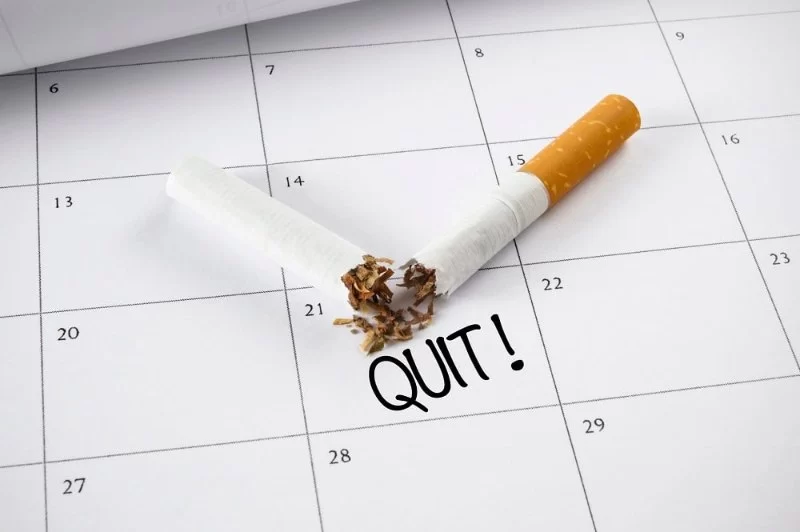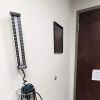- smoking-and-heart-health-connection - How Smoking Damages the Heart: The Scientific Connection
- why-quitting-is-the-most-important-step - Why Smoking Cessation Is the Single Most Important Step for Your Heart
- immediate-and-long-term-benefits - The Immediate and Long-Term Heart Benefits of Quitting Smoking
- real-life-success-stories - Real People, Real Stories: Quitting Smoking and Saving Their Hearts
- breaking-addiction-cycles - Understanding the Cycle of Addiction and How to Break It
- effective-quit-smoking-strategies - Proven Strategies and Support Systems That Help You Quit
- where-to-find-expert-help - Where to Find Expert Support for Smoking Cessation
1. How Smoking Damages the Heart: The Scientific Connection
Cigarette smoke doesn’t just impact your lungs—it’s a direct attack on your heart. Smoking increases heart rate, raises blood pressure, reduces oxygen delivery, and accelerates the buildup of fatty deposits in arteries. The toxic chemicals in tobacco smoke inflame blood vessels and trigger clot formation, significantly raising the risk of heart attack and stroke.
Even light smokers have a much higher risk of coronary heart disease than non-smokers. This connection is so well-established that cardiologists often place smoking at the top of the list of preventable risk factors for heart-related conditions.

2. Why Smoking Cessation Is the Single Most Important Step for Your Heart
Among all lifestyle changes, smoking cessation has the most immediate and powerful impact on heart health. While diet and exercise matter, quitting smoking reduces the risk of a heart attack faster and more significantly than nearly any other intervention. It’s not an exaggeration to say that putting down the cigarette could save your life—starting today.
In fact, the American Heart Association notes that within 24 hours of quitting, the risk of a heart attack begins to drop. That’s how responsive your cardiovascular system is to positive change.
Capital Health Medical Center – Hopewell
capital health medical center hopewell
1 Capital Way, Pennington, NJ 08534, USA

3. The Immediate and Long-Term Heart Benefits of Quitting Smoking
3.1 What Happens in the First 24 Hours
Just one day after quitting, blood pressure and heart rate begin to normalize. Carbon monoxide levels drop, allowing your blood to carry more oxygen. These changes give your heart a much-needed break from constant overwork.
3.2 One Year Later
Within a year, your risk of coronary heart disease is cut in half. Circulation improves, and the body’s ability to repair damaged arteries strengthens. By five years, stroke risk begins to match that of a non-smoker. The body is remarkably resilient if given the chance.
4. Real People, Real Stories: Quitting Smoking and Saving Their Hearts
James, a 52-year-old retired firefighter from Ohio, smoked for 30 years before a mild heart attack changed everything. “I quit that night. Cold turkey. Now, two years later, my cholesterol is down, my energy is up, and my cardiologist says my heart is healing.”
Then there’s Carla, a 39-year-old mother of two from Arizona who used nicotine patches and support groups to kick the habit after her father died from a smoking-related heart attack. “I did it for my kids and for my future. I never realized how strong I could be.”
These real-world stories prove that while the road to quitting may be difficult, it is absolutely worth the effort.
5. Understanding the Cycle of Addiction and How to Break It
Nicotine addiction is both physical and psychological. The brain becomes wired to crave regular nicotine hits, while behavioral cues—like stress or morning routines—reinforce the habit. That’s why understanding the addiction cycle is essential to quitting successfully.
Cravings typically peak in the first few weeks but diminish with time. Knowing when and why cravings hit allows you to prepare, plan, and substitute healthier behaviors in their place.
6. Proven Strategies and Support Systems That Help You Quit
6.1 Nicotine Replacement Therapies (NRT)
Patches, gums, lozenges, and sprays deliver controlled doses of nicotine to ease withdrawal while weaning off the addiction. Used properly, NRTs can double your chances of quitting successfully.
6.2 Behavioral Support
Individual counseling, group therapy, or even digital programs help address the emotional and habit-forming aspects of smoking. Apps and text-based support services provide motivation and accountability wherever you go.
6.3 Prescription Medications
Doctors may prescribe medications like bupropion or varenicline, which reduce cravings and withdrawal symptoms. Always consult a healthcare provider to determine what option fits best for your health profile.
7. Where to Find Expert Support for Smoking Cessation
At HeartCare Hub, we understand how challenging—but vital—smoking cessation is. That’s why we offer expert guidance, tools, and resources designed specifically to support your heart health journey. Whether you're just thinking about quitting or are ready to begin, our professionals are here to help every step of the way.
Remember, quitting smoking is not just a health decision—it’s a heart decision. And it may be the most life-saving choice you ever make.






















Deborah Heart and Lung Center
deborah heart and lung center
200 Trenton Rd, Browns Mills, NJ 08015, USA